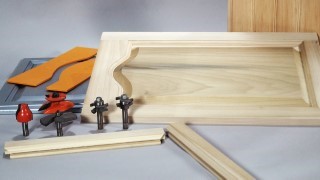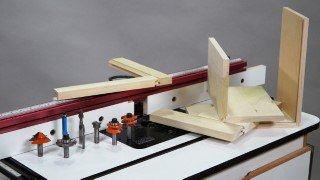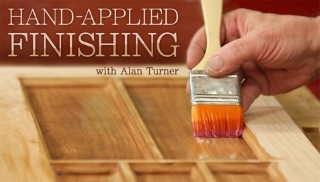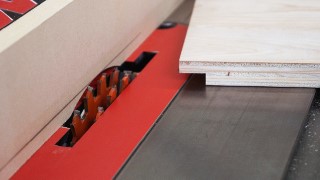Make Quality Doors
Many projects call for doors, from kitchen cabinets to vanities to jewelry armoires. There are a variety of ways to make doors, and this class will help you choose an approach that lends itself best…
Class Preview
Many projects call for doors, from kitchen cabinets to vanities to jewelry armoires. There are a variety of ways to make doors, and this class will help you choose an approach that lends itself best to your woodworking skills and your tools. Regardless of which of our techniques you choose, you’ll create doors that will stand the test of time.
Getting Started
Watch the entire class start to finish before making your first door. This will provide you with an overview of the techniques and approaches. Then go back and, choosing the approach that works for you and your shop, start practicing the set ups and cutting techniques.
Making Frames
Whether you want to make door frames with a reversible bit or two-bit set, we’ve got you covered, taking you through the process start to finish. You’ll need a sled to simplify the end grain cuts on the rails and keep it safe. We’ll show you a shop-made version and a commercially made version. For repeatability, this instructional video provides you with tricks and short cuts you can use to set up the bits each time you make doors in your shop.
Raising Panels
Vertical panel raisers, horizontal panel raisers and panel raisers with back cutters each have distinct advantages. Once you understand the cutters you can choose the bit that’s best suited for your shop and your projects. Set up and use of each bit is different, too. We’ll simplify that set up process for you and make sure you’re gearing up to use the bits correctly and safely.
Getting a Perfect Fit
If you find that the fit between the end grain cuts and long grain cuts isn’t great, you can tweak the router bits. It’s all about shims, and correctly using them to optimize the strength of the cope and stile joint. Now that you’re ready to make frame and panel doors you need to learn to calculate the door part sizes accurately. Whether you’re working on an inset door or overlay door, we provide you with formulas for making the calculations, and show you how to determine the panel size once the frame is complete.
Tips for Making Small Doors
As door parts get thinner, narrower and shorter, you need to change your approach to making doors. First, you’ve got to make sure the bits you’re planning on using will work with the material you’ll be cutting. Next we want to make certain that you’re safe when you’re machining those parts on the router table.
Beyond Standard Frame And Panel Doors
There’s more to door making than frame and panel doors. Bead board, a type of siding, can be used for doors, and provides a great “cabin” look. If you’re working on a project that will be painted, instead of stained and top coated, you can make your doors from mdf. It takes paint very well, provided you follow our recipe for painting success.
Cathedral Doors
Cathedral doors are beautiful, but can be a little intimidating to make. Making these doors safely comes from using a starter pin in the router table, and providing a landing pad where the bit can start its cut on the panel and curved rail. Templates simplify the process of getting perfectly matching curves on the panel and curved rail, and a flush trim router bit is key to perfectly tracing the template. We provide a straight forward system for helping you make these beautiful doors.
Class Summary
Many approaches to door making are covered in this class, designed to help you with tooling, set ups and techniques that work for you. Make some practice doors, perhaps for cabinets in your shop, and you’ll be ready to produce a room full of doors in no time.
Meet Your Instructor
Download this short video to meet your instructor George Vondriska







There are no reviews yet.